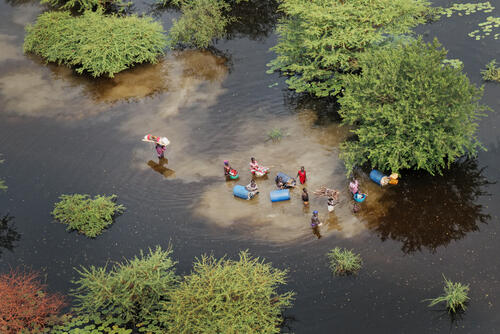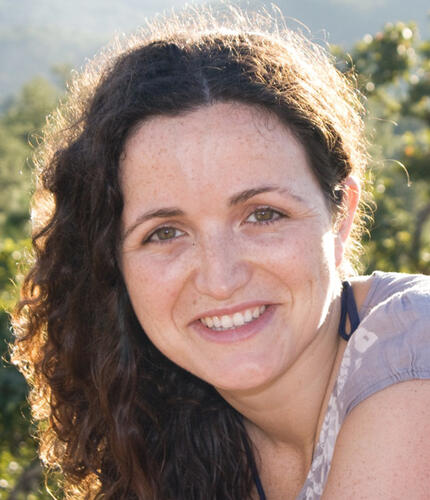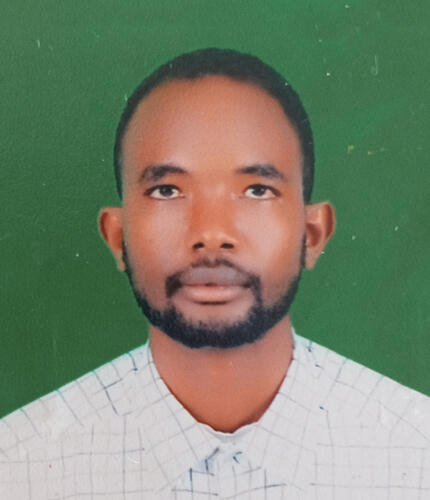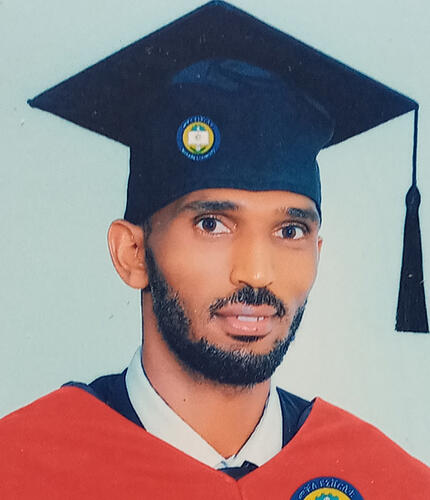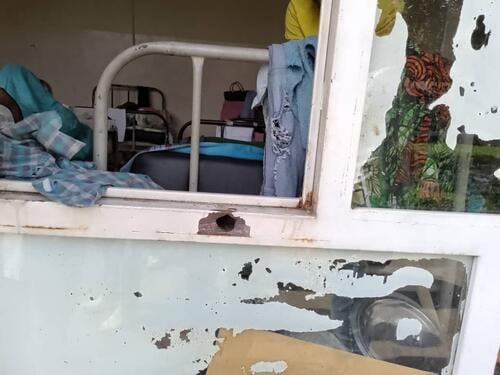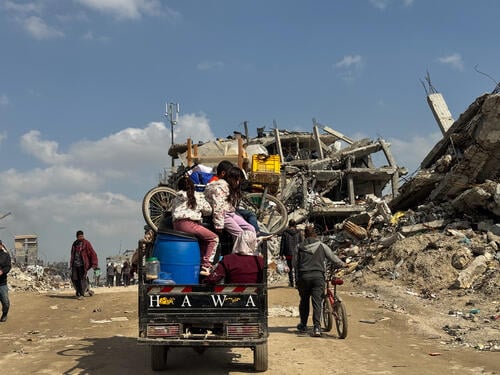International Activity Report 2021 > Year in Review
Half a century since a handful of volunteers from Médecins Sans Frontières (MSF) took our first steps in 1971 in providing humanitarian medical assistance, over 63,000 people continued this work in 2021, providing care to people across more than 70 countries.
Trauma and tragedy in Tigray, Ethiopia
Few places in 2021 needed the presence of lifesaving medical workers more than Ethiopia. The ongoing conflict in the country’s northern Tigray region has resulted in widespread devastation – hundreds of thousands of people have been displaced and are living in terrible conditions, cut off from food, water and medical assistance. In March, we reported that barely one in seven medical facilities in the region we had visited over a three-month period were fully functioning, either due to a lack of staff and supplies or because they had been systematically attacked and looted.
Our teams in Tigray, sadly, have not been spared the violence. In June, our driver Tedros Gebremariam Gebremichael, our assistant coordinator Yohannes Halefom Reda, and our emergency coordinator María Hernández Matas, were brutally murdered. Even today we do not know with certainty by whom or why; we are continuing to work to find the answers for their families. We miss them and mourn their loss.
Between the violence, access constraints and administrative issues, Tigray has proven to be a hostile environment for humanitarian groups to work in. From August, only one MSF team was able to operate in Tigray, and from late November, none at all. This was due to a combination of our decision to withdraw in the wake of our colleagues’ murders and the impossibility to supply and support our teams on the ground. In late July, the Dutch section of MSF was ordered by the authorities to suspend activities in Ethiopia for three months. Deliberately orchestrated media attacks on NGOs in general, and on MSF in particular, combined with the lack of answers on the murder of our colleagues, made our activities in Ethiopia particularly difficult to uphold. During that period, we were only able to continue working in one region in the country and with Ethiopian refugees in neighbouring Sudan.
Responding to the needs of people caught up in political turmoil
A military takeover of the government in Myanmar in February complicated our operations, as we were unable to send in people to run our activities, money to pay staff, or supplies. These challenges had a massive impact on our teams and our ability to deliver care to people in need.
Following the withdrawal of coalition forces from Afghanistan earlier in the year, the Islamic Emirate of Afghanistan (also known as the Taliban) entered Kabul in August, in the last stage of a rapid retake of power in the country, as the government collapsed. MSF teams stayed in place throughout the takeover and we have since continued to provide care. This assistance is needed more than ever to address the huge medical needs, as international donors have withdrawn funding and the country is no longer able to access frozen funds and assets. This dire situation was compounded in the second half of the year, when drought and a deepening economic crisis led to an increase in the numbers of malnourished children arriving at our projects.
A global pandemic enters its second year
As the COVID-19 pandemic continued into a second year, our teams scaled up activities to respond to particularly severe outbreaks in Syria, Yemen, Peru, India, Brazil, South Africa, and Venezuela, among others. As well as assisting with infection prevention and control, we supported patient care. We also donated and managed supplies of oxygen – essential in the treatment of severely sick patients – of which many places experienced critically low supplies, to hospitals in countries such as Yemen and Lesotho.
With the arrival of COVID-19 vaccines, our teams slowly started working on vaccination campaigns in several countries, including Lebanon, Tunisia and Eswatini. MSF’s Access Campaign highlighted the need for equitable distribution of vaccines and for an intellectual property (IP) waiver that would facilitate greater, and more rapid, production of vaccines. However, getting shots into people’s arms was often a challenge and IP and supply issues were not the only reasons this was difficult: our teams faced implementation costs, vaccine hesitancy, staff resistance, and widespread misinformation or disinformation. Some countries also had more pressing health issues to address and consequently did not consider vaccinating against COVID-19 a priority. We implemented measures to combat these challenges, including digital and on-the-ground health promotion campaigns.
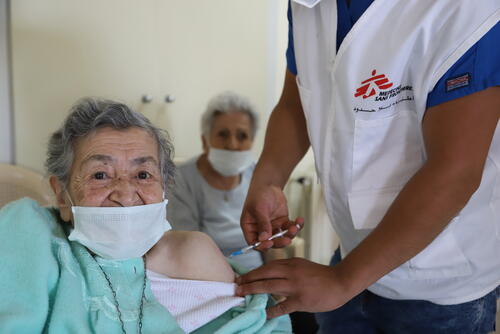
Assisting migrants on their dangerous journeys
In 2021, MSF teams witnessed a sharp rise in the number of people travelling through the Darién Gap, a remote, roadless swath of jungle on the border between Colombia and Panama that is South America’s only northbound land route. As well as the jungle’s natural dangers, such as land slips and rising river waters, migrants often fall prey to criminal gangs and people traffickers, and are robbed, beaten, raped or even killed. We provided treatment for people emerging from the Panama side of the jungle, who are mainly from Cuba or Haiti, although our teams have seen people from West Africa. Regardless of origin, everyone passing through the Gap is heading north, where they still face the dangerous route through Mexico, in search of a better life in the United States.
In the second half of the year, the Belarusian authorities were accused by the European Union of facilitating the movement of migrants and asylum seekers towards the borders of Poland and Lithuania. The crisis became political, with border fences erected and people pushed back by Polish authorities. People became stranded literally in the middle, in cold and dismal conditions, as Belarus continued to push people to the border. MSF teams offered medical and humanitarian support where we had access in Belarus; we tried to work in Poland, before leaving at the end of the year, for lack of access being granted by the authorities.
In Libya, the severe violence perpetrated against migrants and refugees held in detention centres led us to suspend our activities in Tripoli between June and September. The terrible conditions inside the country continued to push people to attempt to cross the central Mediterranean Sea, the world’s deadliest migration route. In 2021, we maintained our search and rescue operations, on a new, self-chartered boat, the Geo Barents.

Disease and displacement continue in the Sahel
Life for people across the Sahel region continued to deteriorate in 2021, with violence spreading deeper into Burkina Faso, Mali, Niger and Nigeria, and causing waves of displacement. Inside displacement camps, people are exposed to other dangers, such as epidemics and diseases caused by poor sanitation and hygiene conditions.
An upsurge in violence in northwestern Nigeria, especially in Zamfara and Katsina states, forced thousands of people to flee over the border into Niger, where our teams treated unprecedented numbers of children for severe malnutrition. We also responded to outbreaks of malaria, measles and meningitis, diseases which are particularly lethal in malnourished children, in Niger and other countries in the region.
Even medical care was not respected – in January, an MSF ambulance came under attack by armed militiamen in central Mali, resulting in the death of one of the patients it was transporting.
Chronic violence causes crises across communities
Enduring violence and conflict across a number of countries in 2021 led to continuing situations of hardship and crisis for people and communities.
People living in northeastern Democratic Republic of Congo (DRC), particularly North Kivu, South Kivu and Ituri provinces, have experienced decades of often horrific levels of violence. In North Kivu province – which experienced both DRC’s twelfth Ebola outbreak and the devastating consequences of the eruption of volcano Mount Nyiragongo in 2021 – residents fled in scattered directions to escape the often-intense fighting occurring between the army and local armed groups. The people who have ended up internally displaced live in often terrible situations in camps, where transmissible diseases and sexual and gender-based violence are common.
In neighbouring Ituri province, even our teams were not immune from the violence; in late October, unknown armed attackers targeted an MSF convoy, injuring two staff. The attack forced us to first suspend our activities, and subsequently close our projects, in two health zones where access to healthcare is largely lacking.
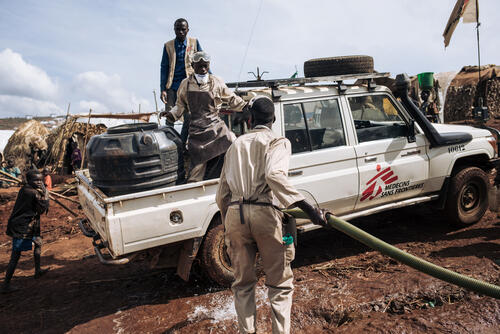
The political, economic and security situations in Haiti significantly deteriorated in 2021, with the July assassination of the president and another devastating earthquake in August. Neighbourhoods in the capital Port-au-Prince have been taken over by armed gangs, who rule the streets, with abductions, violence and even murder becoming commonplace. As the streets are so unsafe, people in these areas are left unable to access healthcare.
In Cameroon, extreme violence in the country’s English-speaking North-West and South-West regions has continued, leaving communities with difficult or no access to healthcare. In the North-West region, the forced withdrawal of our teams, due to an ongoing suspension by Cameroonian authorities, and the complete absence of humanitarian assistance in this part of the country, have only served to widen the gaping hole in medical services in an area badly affected by armed violence.
Our teams are present and respond to high medical needs for communities affected by ongoing and/or chronic violence in places including Cabo Delgado province in Mozambique, Central African Republic, and parts of South Sudan.
Extreme situations caused by extreme weather
Whether due to the climate emergency or not, our teams responded to the often-disastrous consequences of extreme weather in 2021.
Severe floods hit South Sudan hard for the third consecutive year. Bentiu displaced people’s camp and Mayom were again flooded out. Our teams delivered emergency healthcare and relief items, such as plastic sheeting and mosquito nets, to people. Increased rain due to climate change brought floods to parts of Niger, including the capital, Niamey. For the second year running, we saw unusually high numbers of patients with malaria and malnutrition in Niamey, an area where we have been working for the last 20 years.
At the other extreme, a lack of rain and drought in parts of Somalia exacerbated the ‘hunger gap’ or lean season between harvests. In Madagascar, deforestation worsened a devastating drought, leading to crop failure. In these places, our teams responded to high levels of malnutrition.
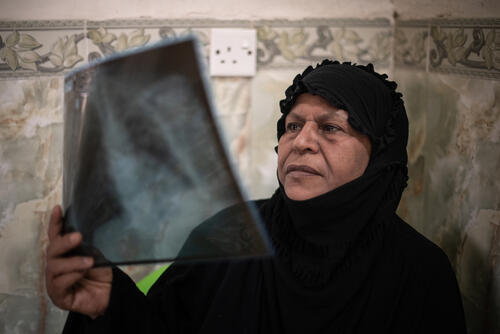
Practical results for TB
In late October, we announced positive early results from the TB PRACTECAL clinical trial. The trial, which aims to improve treatment for drug-resistant TB (DR-TB), showed that nearly nine out of 10 patients were cured using an all-oral drug regimen for six months. This is a drastic improvement on the standard two-year regimen, which only cures half of patients and involves daily painful injections, which often have significant side effects. These results have prompted the World Health Organization to update its DR-TB treatment recommendations.
We are enrolling patients for the endTB-Q trial, which seeks to add to the research to help revolutionise treatment for the toughest strains of DR-TB. Despite this progress, TB still remains a neglected disease, where treatment is often ill-adapted to patients’ needs, and where further research on shorter and more patient-friendly protocols – including on appropriate paediatric treatments and diagnostics – is badly needed.
50 years of humanity
On 22 December 2021, we marked the 50th anniversary of the founding of MSF in Paris by a group of journalists and doctors. After 50 years of humanity, we continue to be guided by our core principles of independence and impartiality, and the humanitarian spirit that inspired our founders.
*MSF Directors of Operations - Ahmed Abd-elrahman, Dr Marc Biot, Akke Boere, William Hennequin, Dr Sal Ha Issoufou, Christine Jamet, Teresa Sancristoval.



